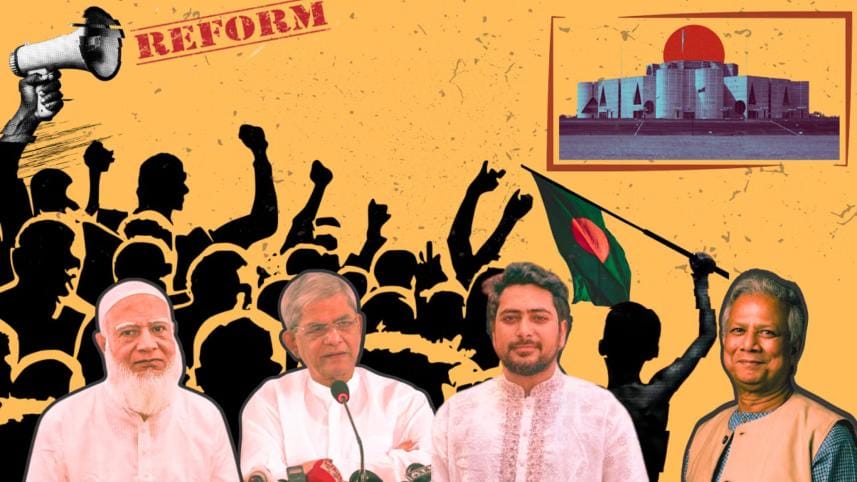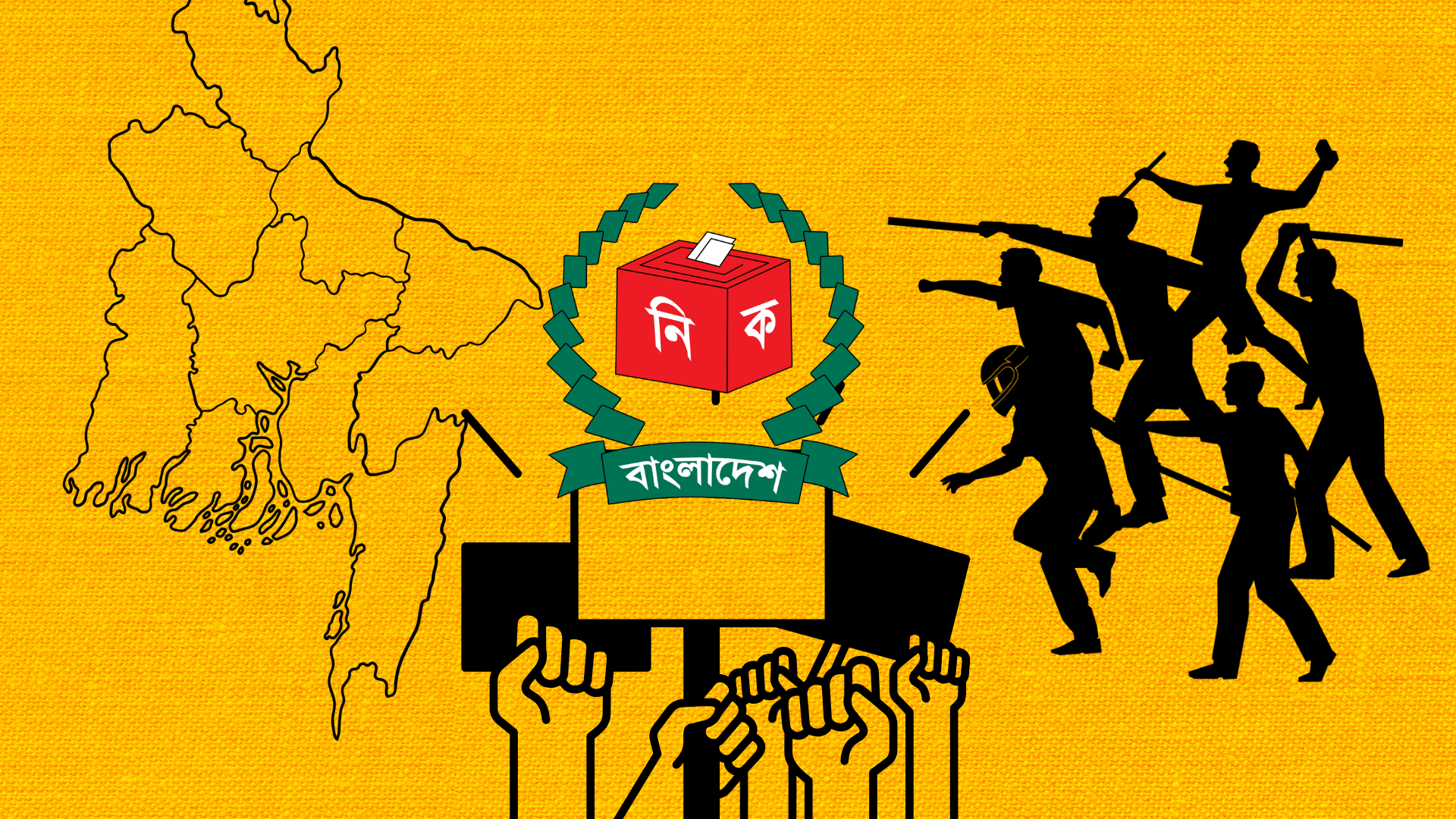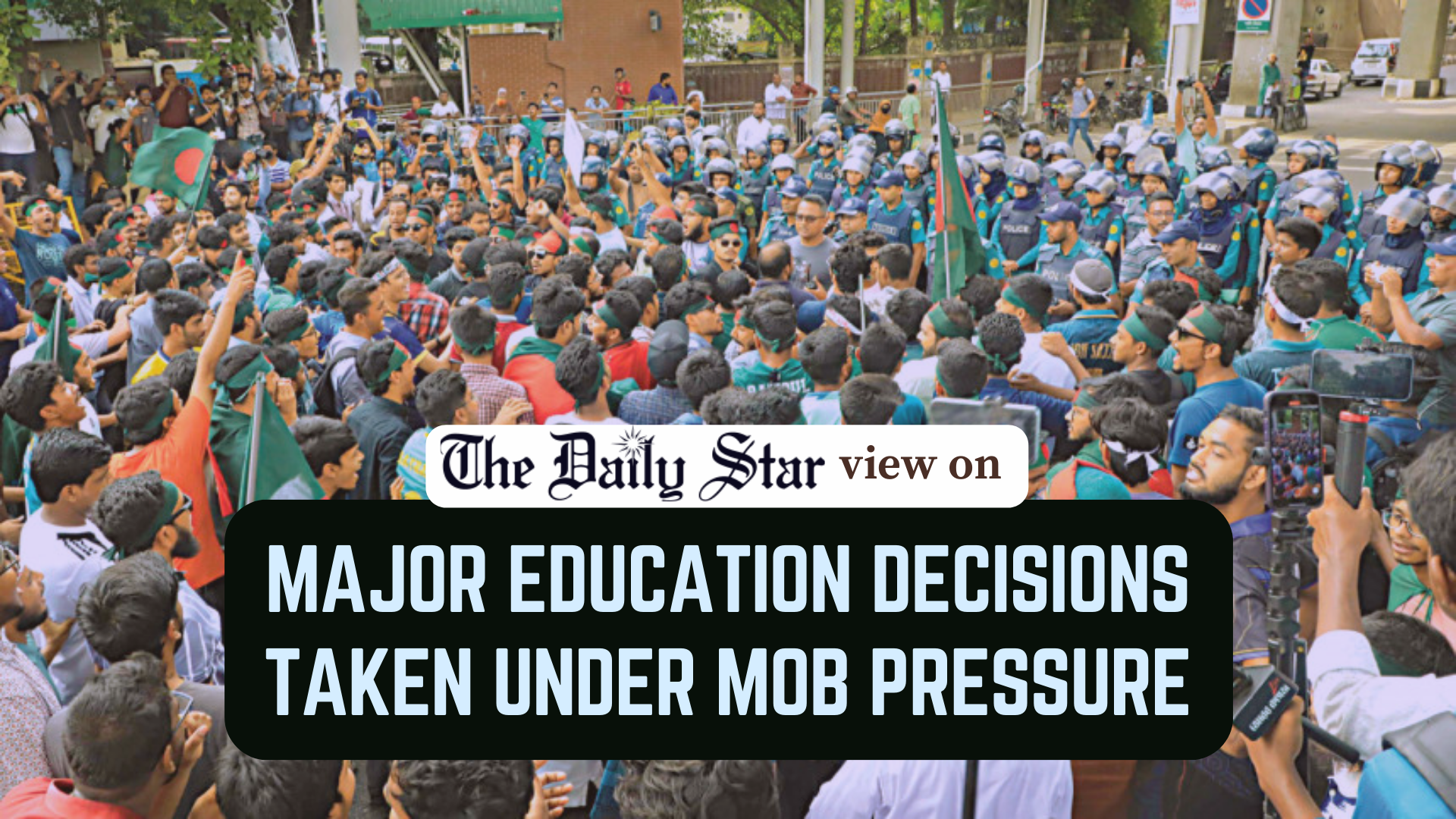Reforms vs elections? A false choice for an aspiring democracy

Let us indulge in a thought experiment and jump forward 50 years. In the year 2075, a student in a Bangladeshi school is preparing for a subject she has been neglecting the whole year. At the very last moment, she sits down to study and sees the topic is "Dictatorship and Sheikh Hasina: 2009-2024". She quickly pulls out her personal AI assistant and types in: "Who was Sheikh Hasina and what did she do between 2009-2024?"
But here, we depart from the future and come back to the present. Because unlike this indolent student, we already know what Hasina did. If we compress the answer into a single sentence for the benefit of this student, it would be something like: "Hasina made free and fair elections impossible in Bangladesh and used the resultant lack of accountability to kill and torture thousands, oppress millions, launder billions of dollars, and destroy the financial system." On a tangent, it is one of the lasting Foucauldian legacies of Hasina that we had to get into the habit of saying "free and fair" before elections—something that is generally assumed as a given in much of the world.
Like all self-evident truths, this axiom bears repeating. Hasina was only able to create a system of accomplices, killers, torturers, and looters because she removed the fear of accountability that haunts every democratic government. The fear of being accountable to the people, of having to look them in the eyes and account for all their wrongdoings, of being on the receiving end of the same measures that were being imparted: Hasina promised a magical reprieve from all of these, and enough people believed her, for a while. In the vacuum of democracy created by a lack of elections, the worst impulses and behaviour flourished.
It was therefore something of a shock to read that Nahid Islam, the lionheart of the July uprising and convenor of the National Citizen Party (NCP), had said that elections may not be possible this year due to the law-and-order situation and its lack of improvement. Somewhere in a posh Delhi villa, Hasina must be chuckling to herself. Instead of creating all the elaborate stratagems and theatrics to hold rigged elections while trying to maintain the façade of democracy, she could have just delayed elections indefinitely by blaming it on the law-and-order situation. If anything, she is probably thinking, she did not plan big enough. Hasina mired the country in crossfires and enforced disappearances; she could have also then blamed the same to delay the elections. No need to get dummy candidates or engage in nocturnal voting, just keep delaying the elections.
Sarjis Alam, another NCP leader, said something similar previously when he stated that no one should speak of elections until Hasina was punished for her crimes. Hasina kept us in an autocratic purgatory during her regime. Why should we give her the satisfaction of remaining in the same limbo even after she has fled? It is worth repeating, over and over, if necessary, that one cannot claim to be anti-Hasina while displaying the same defining characteristics as our former prime minister. All those who fought together to oust Hasina have a collective obligation to do and be better than what Hasina managed, if they are to stay true to the spirit of last year's uprising.
We waded through a tsunami of blood and tears last July to rid ourselves of a government that would not hold elections for fear of the results. We want to believe the current interim government is better and knows better. Starting from the chief adviser down to other responsible stakeholders of the state, many individuals have spoken about December being the likely date of the next parliamentary election. It should be the priority of every Bangladeshi who believes in democracy to assist in the hastening of the festival of election, where the people of Bangladesh will once again reassert their constitutional sovereignty over their country, and Bangladesh will again proudly take its place amongst the democracies of the world.
It is also incumbent upon us to flatly reject the false binary that posits we can have either reforms or elections. Bangladesh can and must have both. As is the broad consensus, all pro-July parties will hopefully agree on a common set of reforms, perhaps to be partially implemented before and partially after the elections. An elected parliament, on the other hand, can tackle reforms with far more alacrity and enthusiasm than the current government, whose dependence on consensus, amidst stakeholders with widely divergent priorities, has too often left it mired in inaction and indecisiveness.
The medicine for bad politics is better politics. The perfect rejoinder to the last 15 years of autocracy is to return to the practice of democracy, with a durable system that can hold free and fair elections after every parliamentary term, and where the transition of power can happen with handshakes and democratic continuity. That is a dream worth pursuing. That is a Bangladesh we could proudly pass on to our future generations.
Ehteshamul Haque is an attorney barred in Virginia, who previously worked at the US Department of Justice, HP, and Verizon.
Views expressed in this article are the author's own.
Follow The Daily Star Opinion on Facebook for the latest opinions, commentaries, and analyses by experts and professionals. To contribute your article or letter to The Daily Star Opinion, see our guidelines for submission.



 For all latest news, follow The Daily Star's Google News channel.
For all latest news, follow The Daily Star's Google News channel. 

Comments